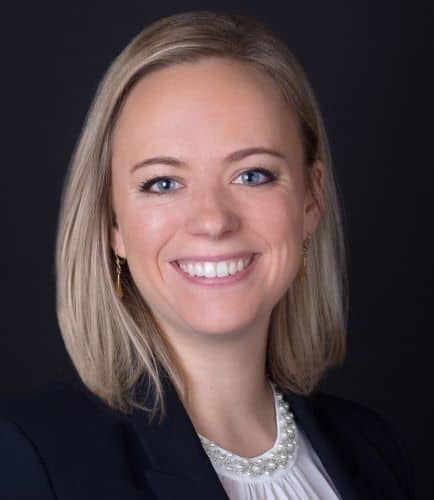To make Wealthtender free for readers, we earn money from advertisers, including financial professionals and firms that pay to be featured. This creates a conflict of interest when we favor their promotion over others. Read our editorial policy and terms of service to learn more. Wealthtender is not a client of these financial services providers.
➡️ Find a Local Advisor | 🎯 Find a Specialist Advisor

Do you work for Apple? Get the resources you need and expert insights from financial professionals who specialize in helping Apple employees make the most of their compensation package and benefits.
Whether you’re a new Apple employee or you’ve moved up the ranks into a management or executive leadership role over a multi-year career, it’s important to make smart money moves with your income and employee benefits. For example:
✅ Do you know the right moves to make to get the greatest value from the Apple benefits available to you?
✅If you’re thinking about leaving Apple for another job or planning to retire from the company in a few years, are you taking the right steps today to ensure you will receive all of the compensation and benefits that you’ve earned?
Get the Most Value from Your Apple Benefits and Compensation Package
Throughout the year, Apple provides its employees and executives with updates about their benefits ranging from health insurance and health savings plans to retirement plans like a 401(k), deferred compensation plans, and stock options. While the company offers many useful resources and access to knowledgeable staff who can assist with questions, you’ll also find financial professionals not affiliated with Apple who specialize in helping Apple employees make the most of their income and benefits.
Whether you work at Apple Park in Cupertino, California, another office or retail location around the country, or remotely from home, you may have questions about your compensation package and benefits better suited for a financial professional who can offer unbiased advice and guidance.
For example, sensitive topics like discussing the steps you should take before quitting your job at Apple to work elsewhere, protecting yourself in advance of a corporate layoff, or deciding when you should plan to retire are all conversations that may be more comfortable with a trusted financial advisor.
Should you hire an Apple specialist financial advisor or an advisor close to home?
You’ll likely find dozens of nearby financial advisors well-suited to help you reach your money goals with a personalized plan. But it may be more difficult to find a financial advisor who specializes in serving Apple employees.
Fortunately, many financial advisors offer virtual services so you can meet online no matter where you (or they) live.
This means you can choose to hire a specialist financial advisor who lives hundreds of miles away if you decide their knowledge and experience working with Apple employees is a better fit to help with your unique needs.
💡 In the Q&A below, you’ll gain insights from financial advisors who work with Apple employees to help them make smart decisions to get the most value from their compensation and benefits, reduce their money stress, and prepare for a comfortable retirement.
🙋♀️ Do you have questions not yet answered? Use the form below to submit questions anonymously and watch this article for updates with answers to your questions. You can also reach out to the financial advisors below to set up an introductory call or contact them with your questions by email.
💸 Smart Money Insights for Apple Employees & Executives
This page is organized into sections to help you quickly find the information you need and get answers to your questions:
- Q&A: Financial Planning Tips for Apple Employees & Executives
- Get Answers to Your Questions About Your Apple Benefits and Career
- Quick Facts & Resources for Apple Employees
- Browse Related Articles
Q&A: Financial Planning Tips for Apple Employees & Executives
In this section, you’ll learn how you can make the most of your Apple employee benefits and gain valuable tips from financial advisors who specialize in working with Google employees and executives.
Get to Know:
✅ Emily Rassam and Richard Archer (Archer Investment Management)
✅ Alec Prinze (Prinze Foundational Planning) |
Answers to Apple Employee Questions with Emily Rassam and Richard Archer (Archer Investment Management)
With a focus on serving professionals in the technology industry, the financial advisors at Archer Investment Management help their clients get the most value from their benefits and compensation package so they can enjoy life and feel confident about their financial future. Based in Charlotte, North Carolina, and Austin, Texas, respectively, Emily Rassam and Richard Archer specialize in offering financial planning services to Apple employees.
Q: As a financial advisor experienced in helping Apple employees save for retirement, how do you help them make the most of their employee benefits?
Emily: At Archer Investment Management, we specialize in working with mid-career technology professionals. We have several Apple employees as clients and are familiar with the company’s employee benefit plans, retirement plans, equity compensation packages, and ancillary benefits.
More importantly, we are acutely aware of the financial planning needs of technology professionals and how their Apple benefits fit into an overall financial plan, including long-term planning, goal setting, tax planning, and estate planning. We start by building a financial personality profile and risk tolerance assessment to understand your relationship with money and your comfort level with risk.
Q: When you first speak with an Apple employee, what questions do you ask to better understand their unique circumstances and determine how you can best help them achieve their goals?
Richard: Our detailed onboarding process includes conversations about your life goals, how your finances play a role in maximizing happiness, and what it means to be intentional with money. We gather information about your benefits and compensation package, spending plan, short-term and long-term goals, taxes, estate plans, and insurance.
This detailed planning process allows us to build a comprehensive picture of your financial life and how each piece of the puzzle fits together. You cannot make recommendations without examining the whole picture.
Q: Is there a particular benefit available to Apple employees you feel isn’t as well utilized or understood by employees as it should be?
Emily: Beyond the IRS 401(k) contribution limit of $20,500 plus $6,500 of catch-up contributions (as of calendar year 2022), Apple allows employees to contribute after-tax dollars between 1% and 20% of pay. These after-tax dollars can then convert to Roth dollars as a “mega backdoor” Roth contribution.
Few employees know about this option for mega retirement savings and how it can help you build significant wealth over time. Additionally, the Apple plan allows you to utilize a self-directed brokerage window (PCRA) through Charles Schwab. As a registered investment advisor on the Schwab platform, we can seamlessly manage these assets and incorporate them into the overall asset allocation for each Apple employee.
Q: Beyond Apple employee benefits for retirement savings, are there other types of benefits offered by the company that you find valuable to discuss with your clients (e.g., stock purchase plan, education savings, health savings account)?
Richard: Apple has a very generous matching program for charitable contributions. For every dollar donated, Apple matches it one-for-one. Additionally, if you volunteer your time to a qualifying organization, Apple will contribute $25 for every hour you volunteer. Whether you donate your time or treasure, Apple matches your contributions up to $10,000.
In addition to a tuition reimbursement program, Apple provides its own personal and professional development programs through Apple University. Classes range from software skills to personal finance seminars and tools.
Q: For Apple employees thinking about leaving the company to accept a job elsewhere, what actions do you recommend they take before resigning and shortly thereafter?
Emily: Your matched 401(k) dollars are 100% vested from day one. However, you may have received employee stock options or restricted stock units (RSUs) that are unvested. Look carefully at the dates on your grants and vesting schedules to determine when each RSU grant vests; this may impact your timing to leave Apple – you don’t want to leave any money on the table!
You have 90 days after departing the company to exercise your stock options. Work with an advisor to determine which grants to exercise and the best way to fund this purchase.
Get to Know Emily Rassam, Financial Advisor for Apple Employees:
View Emily’s profile page on Wealthtender or visit her website to learn more.
Q: For Apple employees approaching retirement age, how do you recommend they prepare to transition from living off their salary to relying upon other sources of income?
Emily: Our detailed retirement planning process includes:
- A spending strategy tailored to your income goals
- Social Security timing recommendations
- Coordination of health care benefits
- Discussion around how your spending will change throughout retirement
- Stress-testing your retirement projection with many what-if scenarios
- Timing your exit to maximize any unvested incentive stock options (ISOs), non-qualified stock options (NSOs), or RSUs
Q: For Apple employees who have managed their finances on their own to this point, what would you suggest they consider to help decide if they should begin working with a financial advisor at this stage in their lives?
Richard: There are many online tools and calculators. Where we find Apple employees get stuck is understanding how to prioritize goals and seeing the big picture.
We help Apple employees organize their financial lives and provide accountability for reaching goals. Understanding whether you should use surplus dollars to pay down debt, save towards a short-term goal, or work towards a long-term aspiration (such as retirement or college education savings) can be challenging.
For Apple employees planning with a spouse or partner, an advisor can help facilitate difficult conversations and move the ball forward on your planning process.
Q: What are some of the unique financial planning challenges you commonly see among your clients who are Apple employees, and how do you help them overcome these obstacles?
Emily: Apple stock has seen decades of incredible performance. One common obstacle we find is knowing when to diversify away from the concentration risk of holding a high percentage of your net worth in one company’s shares.
Many of our Apple employee clients struggle with selling positions; it requires coaching, recognizing natural human biases, an evaluation of the risks, and careful diversification away from an outsized position.
Q: What questions do you recommend Apple employees ask financial advisors they’re considering hiring to help them decide if the relationship would be a good fit?
Richard: If you were granted employee stock options, RSUs, or participate in the employee stock purchase plan, be sure to work with an advisor who understands how to incorporate those into your overall picture. Seek an advisor who can model the alternative minimum tax (AMT), understands the rules around qualifying and disqualifying dispositions, and knows how and when to diversify away from sizeable single stock positions, if appropriate.
Get to Know Richard Archer, Financial Advisor for Apple Employees:
View Richard’s profile page on Wealthtender or visit his website to learn more.
Q: Is there anything that surprises you frequently in your initial meeting with Apple employees?
Emily: Considering we work with many female-led households, we are pleased to see Apple’s commitment to closing the wage gap and paying women the same as men in similar roles. Apple’s family-friendly benefits include fertility treatments, paid leave for all types of new parents, and a gradual return-to-work program. They provide free guidance to help find childcare and eldercare and include paid time away to care for ill family members.
Q: For highly compensated Apple employees and executives, are there any unique benefits you believe are essential to consider when preparing their financial plan?
Richard: Most benefits are available to all employees, regardless of pay level. Apple uniquely offers stock grants to all workers. Highly compensated employees should know that Apple’s compensation packages are not based on your personal salary history; they have pre-determined ranges for each position based on fair market value. This practice allows for a potentially generous increase in salary when joining Apple.
Q: Is there a particular experience or moment you recall with a client who worked at Apple when you realized they have unique opportunities and circumstances regarding their financial planning needs?
Emily: One unique and detailed plan we worked on involved an Apple employee married to another Fortune 500 technology firm worker. We spent many hours building various stock options into their plans and a strategy to diversify away from the concentration risk of holding two large technology single-stock positions. Our team also coordinated their two strong benefits packages to optimize coverage.
Answers to Apple Employee Questions with Alec Prinze (Prinze Foundational Planning)
Alec Prinze specializes in providing comprehensive wealth management to a select group of high-net-worth families, including individuals such as executives at Apple and those employed at other firms in the tech industry. He intentionally limits the size of his practice to just 100 clients due to the demands of wealth and complex financial situations that require more sophisticated strategies and a greater investment of his time.
Q: As a financial advisor with experience helping Apple employees save for their retirement, how do you help them make the most of their employee benefits?
Alec: Apple employees have a phenomenal benefit with their Restricted Stock Units (RSUs). Our firm works with them to maintain the appropriate cost basis data through their E*Trade platform and provides numerous ways to manage their concentrated position. We prioritize tax efficiency and maximizing our client’s impact through unique approaches such as direct indexing, split-interest trusts, Options Collars, and Protective Puts.
Q: When you first speak with an Apple employee, what questions do you like to ask to better understand their unique circumstances and determine how you can best help them achieve their goals?
Alec: The first question we ask is where they envision themselves at the next stage of their life. We then explore what is needed to reach that next stage. We cover their lifestyle goals and financial needs and wants, and then what resources they currently have dedicated to those goals. We then identify areas that they can improve today to reach their goals quicker.
Get to Know Alec Prinze, Financial Advisor for Apple Employees:
View Alec’s profile page on Wealthtender or visit his website to learn more.
Q: Is there a particular benefit available to Apple employees you feel isn’t as well utilized or understood by employees as it should be?
Alec: We find that many employees don’t keep adequate records of their restricted stock units’ taxes and end up averaging their cost basis, resulting in paying higher amounts of lifetime taxes.
Q: For Apple employees thinking about leaving the company to accept a job elsewhere, what actions do you recommend they take before resigning and shortly thereafter?
Alec: Prior to leaving, contact E*Trade and pull the cost basis data for your records.
Q: For Apple employees approaching retirement age, how do you recommend they prepare to make the transition from living off their salary to relying upon other sources of income?
Alec: They should begin focusing on how they will create a retirement income out of their growth investments. Many employees on the verge of retirement are paralyzed by the impending tax bill to divest out of a stock position that makes up 50-60% of their net worth.
Q: For Apple employees who have managed their finances on their own to this point, what would you suggest they consider to help them decide if they should begin working with a financial advisor at this stage in their lives?
Alec: It’s not what you make, but rather what you keep, and how long you keep it for. Our firm prioritizes tax efficiency and maximizing impact.
Q: What are some of the unique financial planning challenges you commonly see among your clients who are Apple employees and how do you help them overcome these obstacles?
Alec: We commonly see employees with 50-70% of their net worth in Apple Stock with a low cost basis. They are scared of liquidating it because of the taxes, but they are scared of holding it because they don’t want all their “eggs in one basket”. We provide numerous ways to address this problem.
Q: What questions do you recommend Apple employees ask financial advisors they’re considering hiring to help them decide if they’re a good fit?
Alec: How will you help me plan for future taxes?
Are you a financial advisor who specializes in working with employees at Apple or another large company?
✅ Join Wealthtender and get featured as a specialist financial advisor based on your knowledge and experience working with employees at Apple or another large company. (Subject to availability and terms.)
✅ Sign up today and join financial advisors attracting their ideal clients on Wealthtender
✅ Or request more information by email:
Quick Facts & Resources for Apple Employees
| Apple Quick Facts & Resources | Details / Useful Links |
|---|---|
| Apple Corporate Headquarters Address | One Apple Park Way, Cupertino, CA 95014 (📍 Google Maps) |
| Overview of Apple Benefits | https://www.apple.com/careers/us/benefits.html |
| How much do Apple employees Make? | View Apple Salary Research on Glassdoor |
| Where can I learn more about careers at Apple? | Visit apple.com/careers |
| How many people work for Apple? | Apple has over 80,000 employees worldwide (Source: Apple) |
| What is the ticker symbol for Apple stock? | The Apple ticker symbol is AAPL. |
| Facts About the Apple 401(k) Plan | Details |
|---|---|
| What is the Apple 401(k) Plan? | The Plan is a defined contribution plan that was established on March 31, 1984 by Apple Inc. (the Company) to provide benefits to eligible employees, as defined in the plan document. The Plan is currently designed to be qualified under the applicable requirements of the Internal Revenue Code (the Code) and the provisions of the Employee Retirement Income Security Act of 1974 (ERISA). |
| How Much Can Apple Employees Contribute to the Plan? | You have various contribution options available to you within the Apple 401(k) Plan. You can elect to make Traditional 401(k) and/or Roth 401(k) contributions. You also have catch up, After-tax, and rollover contribution options. You decide how much of your pay to contribute to your Apple 401(k) Plan account. All eligible employees can contribute from 1 percent to 75 percent (Traditional 401(k) combined with Roth 401(k) contributions) of eligible pay, up to the maximum annual contribution limits as allowed by the Internal Revenue Service (IRS). For 2022, the annual 401(k) contribution is $20,500 and applies to the total of your Traditional 401(k) and Roth 401(k) contributions. Commissioned employees who want to make 401(k) contributions from commission pay must designate a separate contribution rate, from 1 percent to 75 percent of commission pay. Again, this limit applies to Traditional 401(k) combined with Roth 401(k) contributions. |
| Can Apple Employees make After-Tax contributions? | After-tax contributions generally can be from 1 percent to 20 percent of eligible pay. If your pay consists of regular pay and commission pay, you designate one After-tax contribution rate that applies to regular pay and commission pay combined. While After-tax contributions are not subject to the annual 401(k) contribution limit, they are subject to other IRS contribution limits. |
| Can Apple Employees elect Roth Conversions? | You may elect to convert all or part of your Apple 401(k) Plan account balance attributable to Traditional 401(k) contributions, After-tax contributions, Apple Match, and rollover contributions into Roth contributions, excluding any portion of your account balance that is used to secure a plan loan and any amounts invested in the plan’s self-directed brokerage option (PCRA). If you convert a portion of your account balance to Roth amounts, you will owe taxes on the amount you convert. |
| Are Apple Employees Automatically Enrolled in the Plan? | As a convenience, eligible new hires and rehires will be automatically enrolled in the Apple 401(k) Plan with a Traditional 401(k) contribution of 3 percent of eligible pay (not including commission pay), and contributions will start approximately 30 days after your employment with Apple begins. Employees transferring to the US payroll from other countries are not subject to automatic enrollment. Contributions and the related Apple Match will be invested in the LifePath Index Fund with a target retirement date closest to your assumed retirement age of 65. If you wish to contribute a different percentage of eligible pay, contribute any portion of your commission pay (if applicable), make Roth 401(k) or After-tax contributions, or make a change to your investment direction, or if you do not wish to be automatically enrolled in the Apple 401(k) Plan, you may elect a different contribution percentage, contribution type, or investment direction, or you may opt out at any time. If you make an election or opt out within the first 30 days of hire, you will avoid being automatically enrolled. |
| Can Apple Employees Purchase Apple Stock through the Plan? | The Apple Employee Stock Purchase Plan (ESPP) allows eligible employees to buy Apple stock at a discounted price. Contribute up to 10% of salary with an IRS limit of $25,000. 15% discount on purchasing shares. Note: Cannot purchase in Self-Directed Brokerage Option – as could generate unrelated business taxable income. |
| When Do Apple Employees Become Vested in the Plan? | You are 100 percent vested in your contributions and Apple Match contributions right away. This means you receive all of your contributions, the Apple Match contributions, and any investment gains or losses on this amount when your account is paid out to you. |
| How Big is the Apple 401(k) Plan? | At the end of 2020, the Apple 401(k) Plan had 127,321 participants with account balances and $13.2 billion in assets. |
| Is there a Self-Directed Brokerage Option? | The Apple 401(k) Plan offers a self-directed brokerage option through the Charles Schwab Personal Choice Retirement Account (PCRA). You can elect to invest up to 95 percent of your Apple 401(k) Plan assets in a large universe of mutual funds, individual stocks, bonds, and other investment choices through the PCRA (excluding Apple securities, and limited partnerships and other securities that could generate unrelated business taxable income). The PCRA is where you can access specialty investment options such as socially conscious, environmental and religious funds. |
| Additional Apple Employee Benefits | Details |
|---|---|
| Giving | When you give money to an eligible organization, Apple will match your donations one-for-one, so your $1 has the impact of $2. And if you choose to donate your time, we’ll contribute $25 for every hour you volunteer. Whether you donate time or money, Apple will match your contributions up to $10,000 a year. |
| Development | Plan on developing both professionally and personally. Apple University creates classes, seminars, and beyond-the-classroom tools that help employees understand Apple’s culture, organization, values, and role in the world. You can sharpen general business and software skills through online classes and pick up some know-how from a variety of personal finance seminars. For more formal education related to advancing your career at Apple, you may be reimbursed for certain educational expenses, including tuition. |
| Life | Get discounts on Apple products, third-party accessories and thousands of other products and services. And there are services to help you manage life’s day-to-day tasks: dinner reservations, pet sitters, shopping, personal travel, financial guidance, and more. |
🙋♀️ Have Questions About Your Apple Benefits or Career?
📰 Browse Related Articles
Are you ready to enjoy life more with less money stress?
Sign up to receive weekly insights from Wealthtender with useful money tips and fresh ideas to help you achieve your financial goals.
About the Author

Brian Thorp
Founder and CEO, Wealthtender
Brian and his wife live in Texas, enjoying the diversity of Houston and the vibrancy of Austin.
With over 25 years in the financial services industry, Brian is applying his experience and passion at Wealthtender to help more people enjoy life with less money stress.
To make Wealthtender free for readers, we earn money from advertisers, including financial professionals and firms that pay to be featured. This creates a conflict of interest when we favor their promotion over others. Read our editorial policy and terms of service to learn more. Wealthtender is not a client of these financial services providers.
➡️ Find a Local Advisor | 🎯 Find a Specialist Advisor








